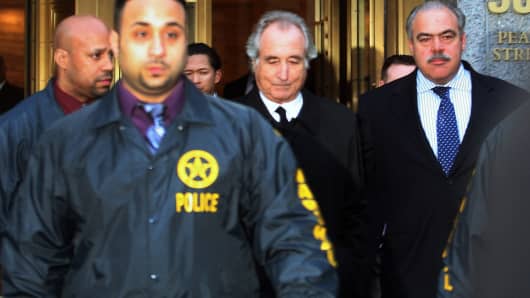To that point, Madoff's firm, which collapsed in 2008, duped pension funds, foundations, a philanthropy established by the Holocaust survivor Elie Wiesel and wealthy individuals, such as actors Kevin Bacon and Kyra Sedgwick.
No one really knows just how much money is stolen from Americans each year. More than $100 billion is a safe starting point, but it is suggested that this figure is far too conservative. People who are victims tend to underreport — or simply not report at all. It's embarrassing, especially for someone who should "know better."
There are numerous ways in which we are tempted to participate in offers that are too good to be true. The top six scams in America, according to AARP, involve romance; charities; home repair; health care; the "grandparents scam," which scares grandparents into thinking their grandchildren are at risk and, of course, investments.
Newer scams include fake calls from the Internal Revenue Service and fake offers to serve as Walmart mystery shoppers. (All you need to do is provide your checking account number so they can "mail you compensation.") These and so many other scams continue to exist because enough people fall prey each and every day.
Perhaps it's because smart people falsely think that they can't be fooled.
More from Investor Toolkit:
What to do when scammers target your toddler
3 tips for handling stock market swings
Channel anxiety to avoid bad investment decisions
Simon Lovell, an English comedy magician, card sharp actor and con man, is famous for stating, "I love it when people tell me they can't be conned, because in my mind they are already halfway to being conned."
Smart people — indeed, all people — need to do three things in order to minimize the probability of being scammed.
First, look at yourself in the mirror and tell yourself, "I can be scammed." You may be a pretty bright person, but it's not your smarts that make most of your decisions.
Second, we are all emotion-centric. Try to avoid making decisions based on emotion. Why are sales of lottery tickets through the roof when the payoff is astronomical? Even though the chance of winning is greatly diminished, people can't overlook the chance of great wealth.
Likewise, when the stock market is at record highs, there is a rush to participate, thus swelling valuations until another emotion, fear, kicks in and then we sell.















